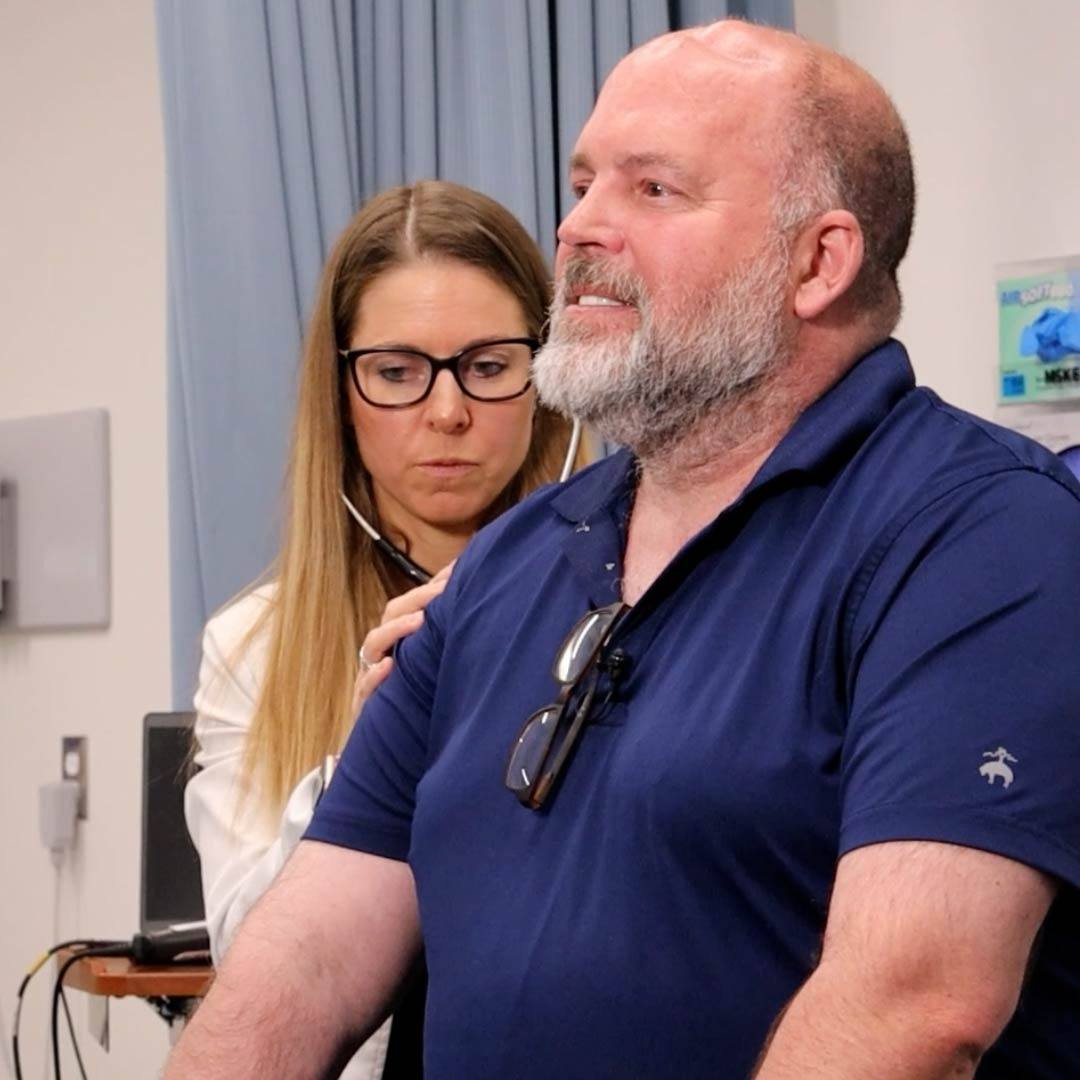 James (Jim) Miller wasn't sure if it was just part of the normal aging process or if retirement wasn't agreeing with him. Whatever the reason, it became nearly exhausting for him just to eat.
James (Jim) Miller wasn't sure if it was just part of the normal aging process or if retirement wasn't agreeing with him. Whatever the reason, it became nearly exhausting for him just to eat.
A native of River Falls, Wis., Jim had recently retired from his job in health care administration when his jaws suddenly felt weak and opening and closing them became difficult.
"This didn't prevent me from getting nourishment as my wife, Donna, happily prepared soft foods like hamburger gravy and mashed potatoes," says Jim. "I figured if I rested my jaws, it would get better, and for short periods of time, it would."
Jim went to see his primary care physician, who scheduled a visit with an Ear-Nose-Throat (ENT) specialist. But before that appointment, Jim and his wife attended a family reunion. "As you can imagine, it was reminiscing and talking non-stop," recalls Jim. "After a few hours it became so difficult for me to talk that my speech became slurred and I couldn't pronounce words properly."
Jim went to the emergency room. Their testing didn't uncover anything abnormal, but they admitted him to the hospital. The next morning, Jim's primary care physician and an internal medicine specialist ran a series of tests and diagnosed Jim with myasthenia gravis, an autoimmune disorder that prevents muscles from working properly. It's a relatively rare disease, occurring in approximately 14 of 100,000 adults.
Jim was put on a drug called Mestinon, which helps restore function by improving the connection between the nerves and muscles and improving strength. The drug does not treat the underlying disease, only the symptoms.
"My doctor had been practicing medicine for 15 years and had never seen a case of myasthenia gravis before," says Jim. His physician recommended that Jim see a specialist at Mayo Clinic, where more than 350 myasthenia gravis patients are treated each year.
Mayo Clinic has the largest EMG (electromyography) lab in the nation, performing more than 15,000 studies each year. The lab routinely performs single-fiber EMG, in which a single muscle fiber is stimulated by electrical impulses to detect impaired nerve-to-muscle transmission, "This test is more complicated but is 95 to 100 percent sensitive in diagnosing myasthenia gravis," says Brian Crum, M.D., a neurologist at Mayo Clinic's campus in Rochester and Jim's primary physician.
In addition, Mayo Clinic has an internationally known immunologic laboratory that tests for immune system abnormalities in myasthenia gravis patients, which helps better target therapy.
Mayo's testing helped doctors chart a new course of treatment for Jim. He was prescribed a drug that modulates the immune system, which is thought to play a role in the development of myasthenia gravis. Dr. Crum discussed with Jim the possibility of enrolling in a study being conducted by the National Institutes of Health and Duke University to evaluate the effectiveness of a different immune-suppressing drug. Jim did participate, and learned that he wouldn't gain further benefit further from the newer and more expensive drug.
Jim's condition is well under control and he leads a completely normal life. "Early detection and treatment for Jim were keys to his success," says Dr. Crum. "He's been doing so well for several years now that it's time to evaluate if he should discontinue his treatment."
"I had a wonderful experience at Mayo," says Jim. "The communications amongst departments and specialists is amazing and their technology is leading-edge. Once I was in their care, my myasthenia gravis symptoms subsided almost as quickly as they came on. Although I have a pretty benign condition, they treated me very special."
With proper treatment, the outlook for most patients with myasthenia gravis is very good. Nearly always, with the help of medications, patients are able to lead normal or nearly normal lives. Some cases of myasthenia gravis may go into remission and muscle weakness may disappear completely so that medications can be discontinued.
"The ultimate goal of further research is to increase our scientific understanding of the disease," says Dr. Crum. "As we better understand the actual cause of this autoimmune disorder and the role of the thymus gland and immune system, we will be able to better tailor treatments for each individual patient."







